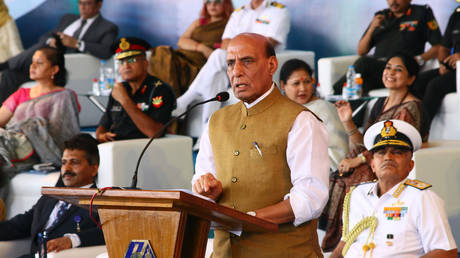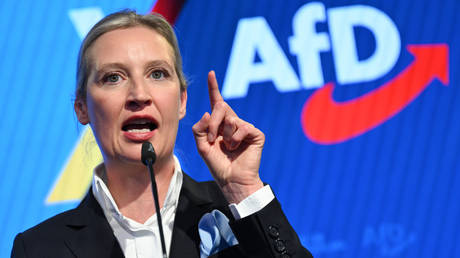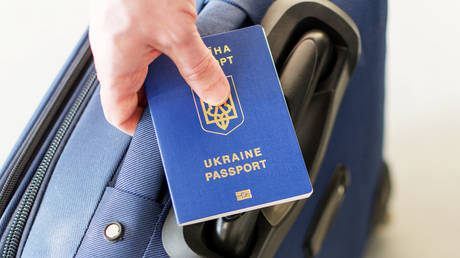
International security should be a collective effort, not a “zero-sum game,” India’s defense minister has said
A truly stable and just global order can only be created when nations cease attempting to ensure their own security at the expense of others, Indian Defense Minister Rajnath Singh has said.
Speaking to the National Defense College on Thursday, Singh argued that the world should develop a collective approach to security.
“India does not believe in a world order where few are considered superior to others,” he said, adding that India’s own strategic policy should be “moral.”
If security were to become a truly collective enterprise, then the world could begin creating “a global order which is beneficial to all of us,” Singh added.
National security should not be seen as a “zero-sum game,” he insisted, adding that nations should instead seek to find “win-win” solutions that would benefit everyone.
“We should not be guided by narrow self-interest which is not beneficial in the long run,” the defense minister warned, calling for leaders to adopt a principle of “enlightened self-interest” that would make their nations more sustainable and resilient to shocks.
A “strong and prosperous” India should not be built at the expense of others, he said. Instead, New Delhi would prefer to “help other nations realize their full potential.”
The minister also warned about the growing impact of “information warfare” and fake news campaigns on political stability, which he said was used for “engineering the opinion or perspective of the masses.”
This information war is “most evident in the ongoing conflict between Russia and Ukraine” where both sides use social media to “spread competing narratives about the war and portray the conflict on their own terms.”
The ideas expressed by Singh resemble the arguments made by Russia in early 2022 when it sought an agreement with the US and NATO to reduce the risk of a conflict on the European continent. At the time, Moscow similarly argued that the security of one nation could not be enhanced at the expense of others.
Moscow requested that NATO refrain from any military activity on the territory of former Warsaw Pact states that joined after 1997, following the fall of the Soviet Union. It also requested that NATO vow not to expand further east. Its proposals for a long-term European security architecture were rejected, however.




